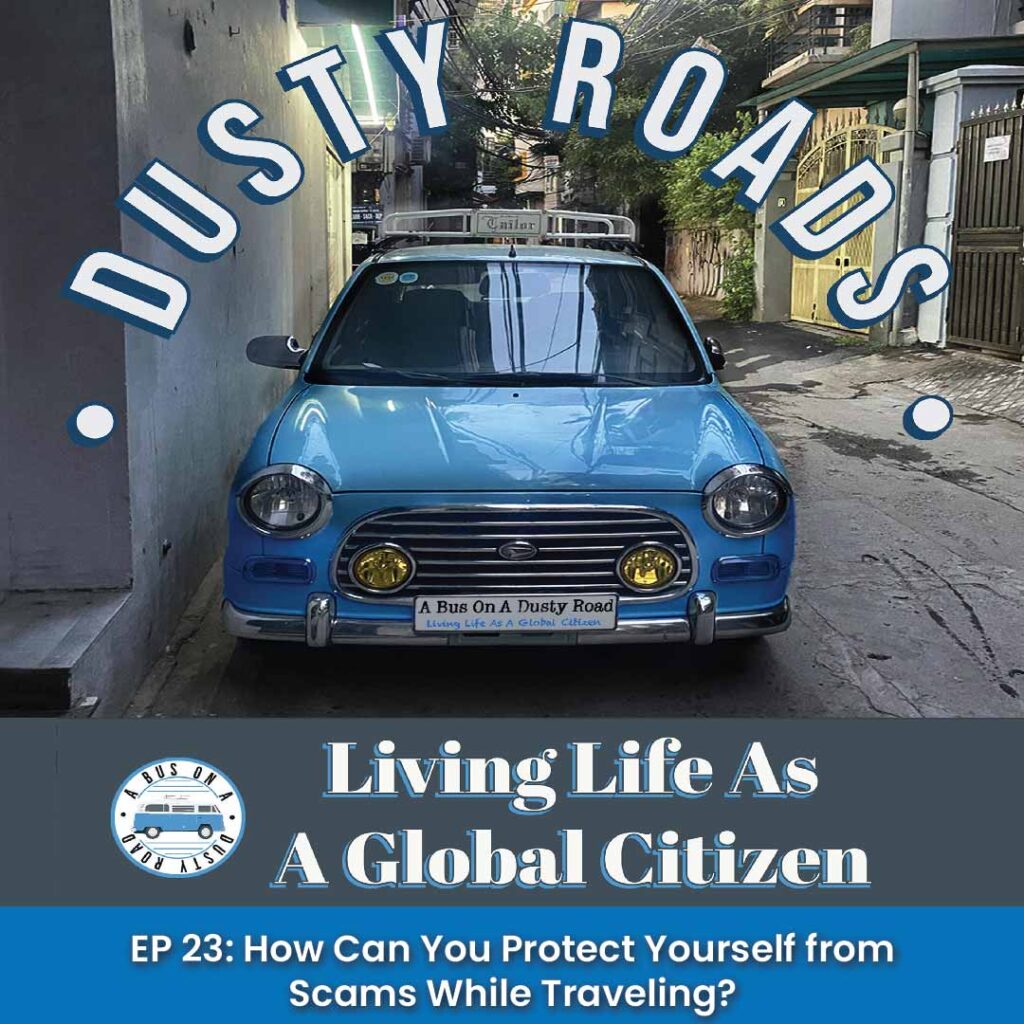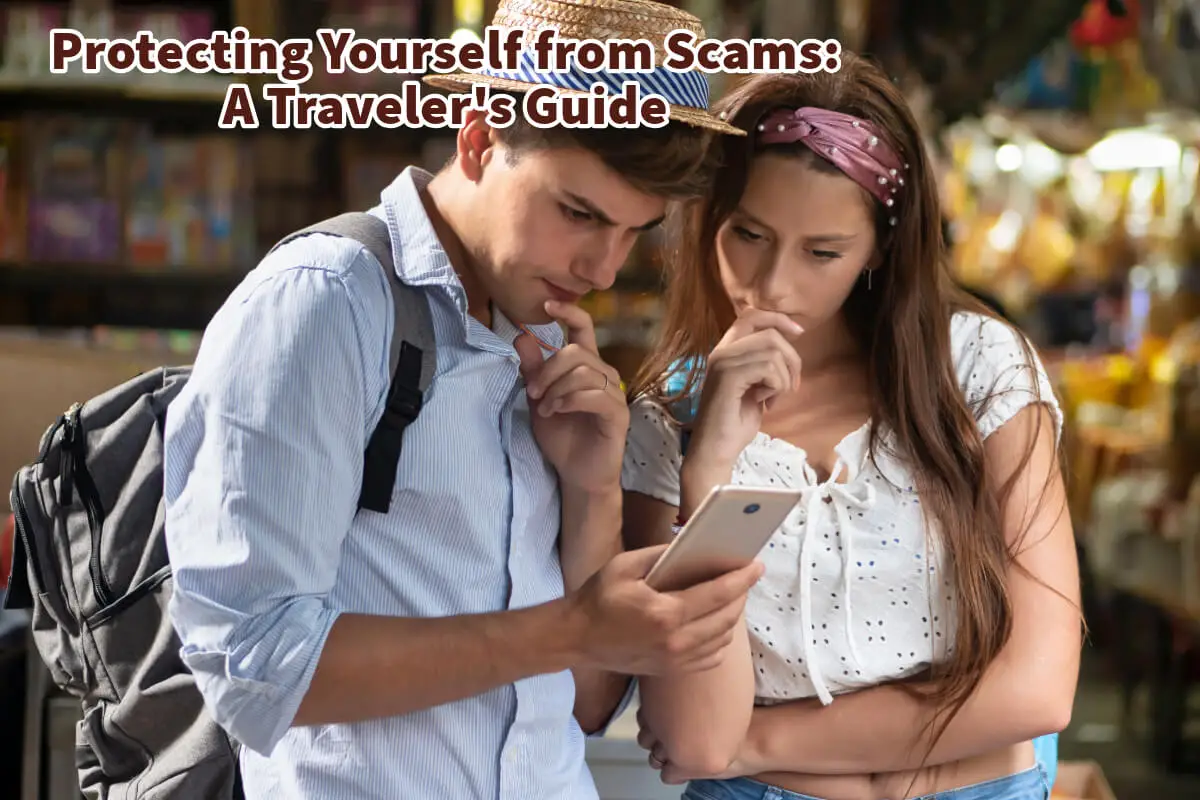In today’s interconnected world, scams have become an unfortunate part of life for many, whether you’re a seasoned traveler or someone rarely leaving their hometown. The rise of digital communication has only made it easier for scammers to target unsuspecting individuals using increasingly sophisticated tactics. As someone who has experienced the pitfalls of international travel and the tricks used by con artists, you know the importance of staying vigilant.
This guide aims to arm you with essential strategies to protect yourself from scams. From the classic honey trap to sophisticated bank impersonations, we’ll cover the most common schemes and provide practical advice on how to avoid falling victim. Whether you’re planning your next adventure abroad or want to safeguard your personal information at home, these tips will help you stay one step ahead of the scammers.
Table of Contents
- Guarding Against Scams: Essential Tips for Savvy Travelers
- 1. Avoid the Honey Trap
- 2. The “Poor Me” Trick
- 3. Verify Bank Communications
- 4. Be Wary of “Too Good to Be True” Offers
- 5. Protect Your Personal Information
- 6. Stay Informed About New Scams
- Listen To Our Podcast About How Can You Protect Yourself from Scams While Traveling? Below or By clicking here.
- Related Questions
Guarding Against Scams: Essential Tips for Savvy Travelers

As an experienced traveler, you’ve likely encountered your fair share of scams and rip-offs. However, in today’s digital age, scams have become a ubiquitous threat, affecting everyone, whether they travel or not. This guide will explore various strategies to protect yourself from common scams.
1. Avoid the Honey Trap
One of the oldest tricks in the scammer’s book is the “honey trap.” This scheme involves a scammer attempting to draw you into their life, professing love and devotion, only to request money under various pretenses later.
How to Protect Yourself:
- Be skeptical of quick declarations of love. Scammers often rush to establish an emotional connection.
- Verify their identity. Conduct a reverse image search on their photos, check their social media presence, and look for story inconsistencies.
- Never send money to someone you haven’t met in person. No matter how convincing their story might be, this is a red flag.
2. The “Poor Me” Trick
In many countries, particularly in parts of Asia, scammers pose as impoverished individuals to gain your sympathy and financial assistance. While it’s natural to want to help, it’s important to distinguish genuine need from manipulation.
How to Protect Yourself:
- Research common scams in the region. Knowing the typical tactics used can help you stay alert.
- Trust your instincts. If something feels off, it probably is.
- Give wisely. If you want to help, consider donating to reputable local charities instead of individuals.
3. Verify Bank Communications
In today’s world of advanced technology, scammers often impersonate banks and other financial institutions. They may send emails or phone calls asking for personal information or urgent actions.
How to Protect Yourself:
- Do not respond to unsolicited emails or calls. If you receive a suspicious email or call, do not provide any information.
- Verify the source. Hang up and call your bank using the number on their official website or your bank statement.
- Use two-factor authentication. This adds an extra layer of security to your online accounts.

4. Be Wary of “Too Good to Be True” Offers
Scammers often lure victims with promises of easy money, luxury vacations, or expensive goods at unbelievably low prices.
How to Protect Yourself:
- If it sounds too good to be true, it probably is. Always approach such offers with skepticism.
- Do your research. Look for reviews and ratings of the seller or the company offering the deal.
- Use secure payment methods. Credit cards and payment services like PayPal offer more protection against fraud than direct bank transfers.
5. Protect Your Personal Information
Identity theft is a significant threat, with scammers using various methods to obtain personal information.
How to Protect Yourself:
- Shred sensitive documents. Before discarding documents that contain personal information, make sure to shred them.
- Be cautious online. Avoid sharing personal information on social media and be wary of phishing attempts.
- Use strong, unique passwords. A password manager can help you maintain secure passwords for all your accounts.
6. Stay Informed About New Scams
Scammers constantly evolve tactics, so staying informed about the latest scams is crucial.
How to Protect Yourself:
- Follow news updates. Regularly check news sources and websites dedicated to reporting scams.
- Join online communities. Participate in forums or groups that discuss scams and fraud prevention.
- Report scams. If you encounter a scam, report it to the relevant authorities to help prevent others from falling victim.

While scams are a pervasive threat, especially for seasoned travelers, being vigilant and informed can significantly reduce risk. By following these tips and maintaining a healthy level of skepticism, you can protect yourself and your finances from scammers.
Remember, the best defense is to stay one step ahead of the scammer. Safe travels!
Listen To Our Podcast About
How Can You Protect Yourself from Scams While Traveling?
Below or By clicking here.

At A Bus On A Dusty Road, we talk about everything about travel, life, sailing, and ex-pat living. We are all about “Living Life As A Global Citizen.” We explore social, cultural, and economic issues and travel.
We would love to have you be part of our community. Sign up for our newsletter to keep up-to-date by clicking here. If you have any questions, you can contact me, Anita, by clicking here.
Listen to our Podcast called Dusty Roads. You can find it on all major podcast platforms. Try out listening to one of our podcasts by clicking here.
Subscribe to our A Bus On A Dusty Road YouTube Channel with great videos and information by clicking here.
Related Questions
Best Virtual Challenges And Why We Love Them
Our top pick for doing a Virtual Challenge is the Conquer Virtual Challenge. We like the Conquer Virtual Challenge, but we appreciate their app and the many challenges they have worldwide. We love Virtual Challenges because we find them motivating, and it keeps us connected with others as we virtually travel around the globe.
By clicking here, you can discover Best Virtual Challenges And Why We Love Them.
Virtual Challenges – How Do They Work?
Virtual challenges are, as the name implies – virtual challenges – you will purchase the challenge and then have access to their app, allowing you to record your miles as you virtually complete a predetermined route. At the end of most challenges, you will receive a medal or certificate acknowledging that you have completed the actual miles.
You can learn more by reading Virtual Challenges – How Do They Work? by clicking here.
Is The Conqueror Virtual Challenge Legit?
The Conquer Virtual Challenge is 100% legit. Upon completing a challenge, you will receive a medal for acknowledging that you have completed the challenge. You can also pay extra to get a T-shirt or purchase other merchandise. Even though this challenge is 100% virtual, it is a great way to virtually experience other parts of the world.
You can discover more by reading Is The Conqueror Virtual Challenge Legit? 10 Things to Know And Understand by clicking here.

